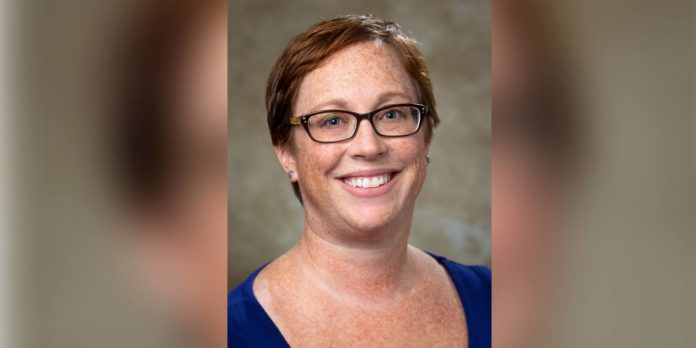MACON – Gretchen Bentz, Ph.D., assistant professor of microbiology in Mercer University School of Medicine (MUSM), recently received a National Institutes of Health (NIH) Research Enhancement Award Program (REAP) grant in the amount of $424,500.
The grant will provide training opportunities for undergraduate, graduate and medical students to participate in biomedical, viral and cancer research related to Dr. Bentz’s work on Epstein-Barr virus (EBV).
REAP is one of two types of NIH Research Enhancement Awards (R15) that support projects at professional and graduate schools that have not been major recipients of NIH support in order to stimulate basic and clinical research and contribute to the nation’s biomedical research effort.
“I was absolutely thrilled to receive this grant,” said Dr. Bentz. “To me, it affirmed the value that I bring to the department and the school, while also affirming the respect I have attained as a research scientist, specifically as a virologist.”
Dr. Bentz’s research focuses on EBV, a herpesvirus that infects more than 90% of the world’s population. Though primary infection usually shows no symptoms, the virus is a significant cause of infectious mononucleosis.
As a herpesvirus, EBV establishes a lifelong latency in the human body. Latent EBV infection is associated with several malignancies, including lymphomas in immunocompromised individuals.
EBV encodes for many proteins, and the principal viral oncoprotein is latent membrane protein-1 (LMP1). Dr. Bentz’s lab seeks to understand how LMP1 modifies cellular proteins in order to induce the cellular changes observed in EBV-associated malignancies.
Her NIH-funded project, titled “The Manipulation of the SUMO Machinery by EBV LMP1,” focuses on one type of modification that is increased in many cancers, including breast cancer.
“Dr. Bentz is an outstanding researcher, scientist and teacher,” said Jean Sumner, M.D., dean of MUSM. “Her work has tremendous potential and is transformational in the area of Epstein-Barr virology. She values and engages medical students in her work and is a highly respected member of our faculty. I am very proud of her accomplishments and that she is at Mercer University School of Medicine.”
Dr. Bentz earned her B.S. in molecular biology and genetics from Juniata College in Huntingdon, Pennsylvania, and Ph.D. in microbiology and immunology from Louisiana State University Health Sciences Center in Shreveport, Louisiana. Her dissertation examined the role of endothelial cells, which line blood vessels, in the spread and pathogenesis of human cytomegalovirus, another herpesvirus.
She completed postdoctoral training at the Lineberger Comprehensive Cancer Center at the University of North Carolina at Chapel Hill, where she began her investigations into the role of viral oncoprotein EBV LMP1 in protein modifications. She was awarded a Ruth L. Kirschstein National Research Service Award and a Pathway to Independence Award, the latter of which provided laboratory support for her first several years on the faculty at Mercer.
At MUSM, she has continued investigating EBV LMP1-mediated regulation of protein modifications. In 2019, she published three research manuscripts on these topics, which helped form the basis of her NIH R15 application.
Dr. Bentz has mentored 14 medical students, three master’s students and nine undergraduates at Mercer, including accompanying two undergrads to present findings at last summer’s International Herpesvirus Workshop.
About Mercer University School of Medicine (Macon, Savannah and Columbus)
Mercer University’s School of Medicine was established in 1982 to educate physicians and health professionals to meet the primary care and health care needs of rural and medically underserved areas of Georgia. Today, more than 60 percent of graduates currently practice in the state of Georgia, and of those, more than 80 percent are practicing in rural or medically underserved areas of Georgia. Mercer medical students benefit from a problem-based medical education program that provides early patient care experiences. Such an academic environment fosters the early development of clinical problem-solving and instills in each student an awareness of the place of the basic medical sciences in medical practice. The School opened a full four-year campus in Savannah in 2008 at Memorial University Medical Center. In 2012, the School began offering clinical education for third- and fourth-year medical students in Columbus. Following their second year, students participate in core clinical clerkships at the School’s primary teaching hospitals: Medical Center, Navicent Health in Macon; Memorial University Medical Center in Savannah; and The Medical Center and St. Francis Hospital in Columbus. The School also offers master’s degrees in family therapy, preclinical sciences and biomedical sciences and a Ph.D. in rural health sciences.








